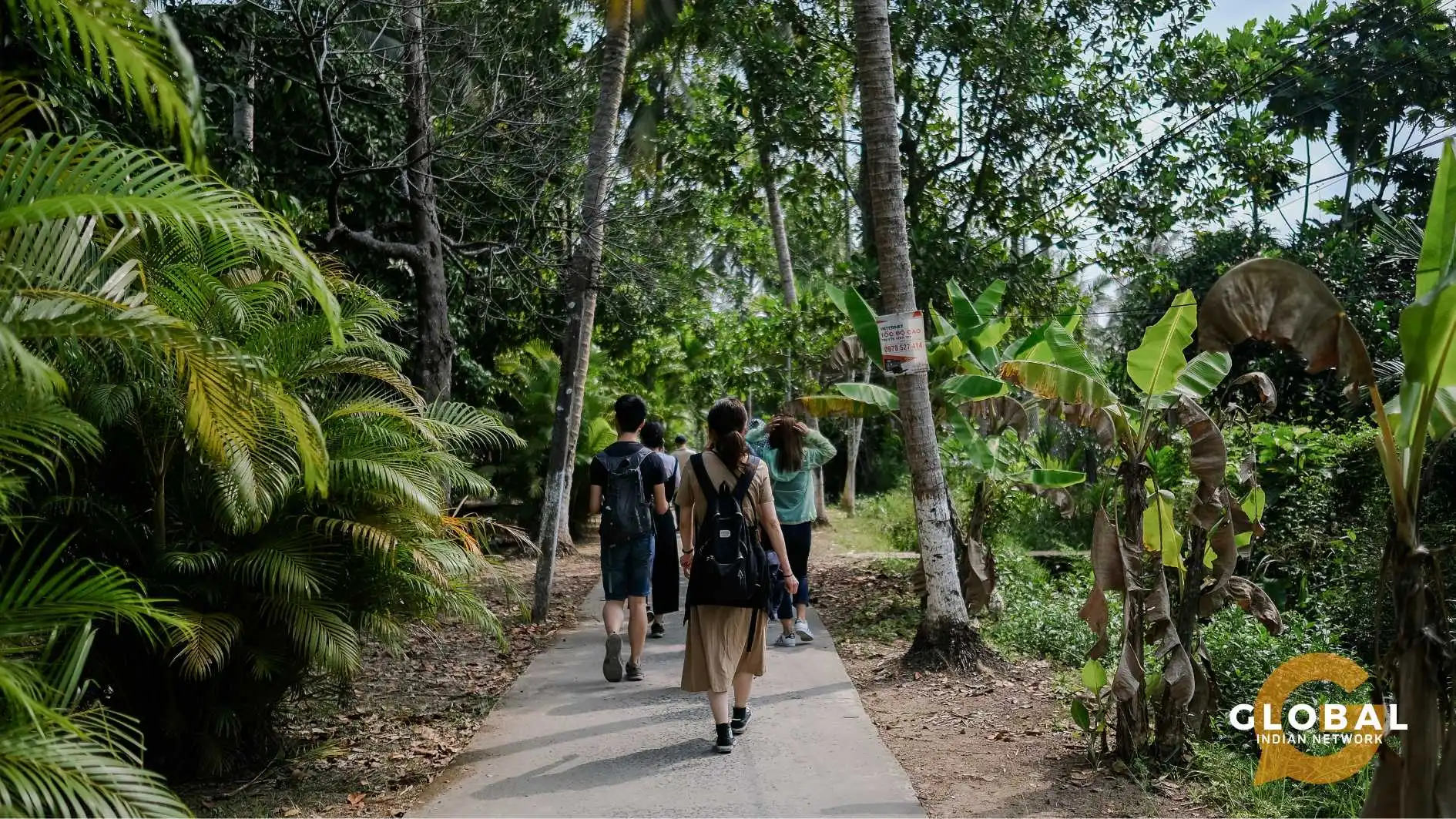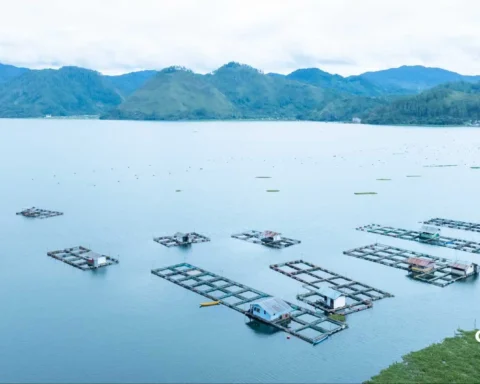The Caribbean, known for its beautiful beaches, rich cultural heritage, and biodiversity, faces a growing challenge in balancing tourism’s economic benefits with sustainability, as rising sea levels, overdevelopment, and environmental degradation threaten its beauty.
India’s successful integration of sustainable tourism in its diverse landscapes, from Kerala’s ecotourism to Rajasthan’s heritage preservation, offers valuable lessons in conservation, community empowerment, and responsible tourism for the Caribbean.
The Caribbean can create a sustainable tourism industry by integrating local traditions, using innovative technology, and prioritizing eco-friendly policies. This article explores how Indian strategies, including heritage-based tourism and digital carbon footprint management, can be adapted for the region’s unique setting.
The tourism sector must not lead to environmental and cultural degradation, and collaboration is crucial to ensuring future generations can experience the Caribbean’s beauty firsthand and preserve its rich history.
Table of Contents
The Imperative for Sustainable Tourism in the Caribbean
Tourism, a significant contributor to the Caribbean’s GDP and employment, faces challenges like overdevelopment, resource strain, and cultural commodification. The Caribbean Tourism Organization (CTO) emphasizes the importance of climate resilience, environmental protection, and community inclusion in tourism policy.
Initiatives such as the Caribbean Strategy for Sustainable Blue Tourism and regional policy frameworks now prioritize:
- Climate adaptation and carbon footprint reduction
- Protection and enhancement of natural and cultural heritage
- Community-based and indigenous tourism models
- Diversification of tourism products, including cultural and eco-tourism
Promoting Sustainable Tourism in the Caribbean Through Indian Expertise
The Caribbean, known for its turquoise waters, vibrant cultures, and biodiversity, faces a critical juncture due to climate change, environmental degradation, and socio-economic inequalities. Sustainable tourism is essential for long-term prosperity. India’s experience in sustainable tourism can offer a blueprint for collaboration and capacity building in the region.

Indian Expertise: Lessons and Opportunities
India’s tourism sector has navigated similar complexities, balancing rapid growth with the need to protect diverse ecosystems and empower local communities.
Several Indian strategies and innovations can be adapted to Caribbean contexts:
Community-Based and Heritage Tourism
India’s community-based tourism, including homestays in Kerala, heritage walks in Rajasthan, and ecotourism in the Western Ghats, showcases how local ownership and cultural preservation can drive economic and social benefits, empower communities, ensure equitable income distribution, and foster authentic visitor experiences.
Sustainable Product Development and Diversification
Indian and Caribbean tourism can diversify offerings by promoting Indigenous gastronomy, artisanal crafts, and cultural festivals. This can reduce pressure on over-visited sites and extend economic benefits to marginalized areas, as seen in wellness tourism, culinary trails, and rural tourism.
Technology and Market Intelligence
India’s digital platforms can enhance Caribbean destinations’ global reach and sustainable tourist flow management. This includes the introduction of carbon calculators, which can be further improved with Indian expertise in digital innovation and data-driven decision-making.
Capacity Building and Skills Development
India’s investment in hospitality training, green certification programs, and public-private partnerships has enhanced the sector’s resilience and sustainability, while fostering Caribbean capacity in eco-certification, sustainable supply chains, and disaster risk management.
Current Collaboration Programs
Several existing programs focus on sustainable tourism collaboration between India and the Caribbean. Some key initiatives include:
India-CARICOM Cooperation: India has engaged with CARICOM nations to support eco-sensitive tourism, renewable energy, and disaster resilience.
Blue Tourism Initiative: This program promotes community-based coastal and marine tourism in the Caribbean, focusing on sustainability, conservation, and local empowerment.
India’s Seven-Pillar Strategy: India has outlined seven key areas for collaboration with the Caribbean, including climate action, ocean economy, and sustainable tourism.
These programs aim to enhance local economies, protect natural resources, and foster responsible tourism.
Pathways for Collaboration
To promote sustainable tourism in the Caribbean, Indian expertise can be utilized through technical assistance and knowledge-sharing programs, joint training initiatives, innovation hubs, and policy dialogue. These initiatives focus on community tourism, eco-certification, digital marketing, sustainability standards, heritage management, climate resilience, and innovation. Additionally, regional centers for sustainable tourism innovation can be established, leveraging Indian entrepreneurship and technology.
Here are five pathways for collaboration between India and the Caribbean:
Knowledge & Technology Transfer: India can share its expertise in renewable energy (solar, wind), water management, and waste reduction technologies relevant to sustainable tourism, aligning with CSTPDF Principle #6 (Optimal Use of Natural Resources).
Community-Based Tourism Development: India can provide training and resources to develop authentic, community-led tourism experiences in the Caribbean, empowering local communities and preserving cultural heritage (CSTPDF Principle #7, Socio-Cultural & Heritage Conservation). This includes skill development in hospitality, tour guiding, and handicrafts.
Disaster Resilience & Risk Management: Leveraging India’s experience in disaster management, joint programs can be developed to enhance the Caribbean’s resilience to natural hazards (CSTPDF Principle #2, Multi-Hazard Risk Management). This could involve early warning systems, infrastructure improvements, and community preparedness initiatives.
Financing & Investment: Encourage Indian investment in sustainable tourism projects in the Caribbean, focusing on eco-lodges, renewable energy infrastructure, and community-based enterprises (CSTPDF Principle #8, Entrepreneurship & Stable Employment).
Policy & Regulatory Frameworks: India can share best practices in developing and implementing sustainable tourism policies, helping Caribbean nations strengthen their regulatory frameworks and promote responsible tourism development (drawing on multiple CSTPDF principles, particularly #5, Apply Sustainability to All Tourism and #12, Monitoring & Evaluation).

Case Studies: Bridging Continents for Sustainability
Kerala’s Responsible Tourism Mission has positively impacted local communities through homestays, village tours, and handicrafts, demonstrating how tourism can benefit communities while conserving resources, and integrating local culture into tourism products can enhance visitor satisfaction and livelihoods.
Rajasthan’s Heritage Walks involve local youth as guides, preserving intangible heritage and creating employment. Caribbean islands can replicate these models, training youth in storytelling and cultural interpretation, revitalizing heritage sites.
Sustainable Development Goals in the Caribbean
The Caribbean region is actively integrating the UN Sustainable Development Goals (SDGs) into its tourism sector, recognizing tourism’s potential to drive economic growth and social progress. The 2020 Caribbean Sustainable Tourism Policy and Development Framework (CSTPDF) underscores this commitment, aligning its guiding principles with the SDGs. Key areas of focus include environmental sustainability (SDGs 14 & 15), promoting decent work and economic growth (SDG 8), and fostering partnerships (SDG 17).
Many initiatives across the Caribbean aim to reduce tourism’s environmental footprint through responsible resource management and conservation. Moreover, there’s a growing emphasis on community-based tourism, which directly benefits local populations and contributes to poverty reduction (SDG 1) and reduced inequalities (SDG 10).
Challenges remain, including the region’s vulnerability to climate change and the need for greater public-private collaboration, but the Caribbean’s dedication to sustainable tourism positions it as a leader in responsible travel.
Conclusion: Toward a Shared Sustainable Future
The Caribbean faces a critical moment requiring a vision for sustainability, resilience, and community empowerment. Drawing on India’s success in eco-tourism, heritage conservation, and technology-driven visitor management, the region can safeguard its natural and cultural treasures.
The Caribbean can transform its tourism industry by adopting community-driven tourism, responsible destination marketing, and technological innovation, ensuring economic growth doesn’t harm ecosystems or local livelihoods. Similar to India’s sustainability plans, the Caribbean can foster tourism that nurtures rather than exploits its diverse landscapes.
India and the Caribbean must collaborate on a shared purpose, adaptability, and commitment to a future where tourism fuels prosperity without compromising integrity. This synergy could transform the Caribbean’s tourism landscape into a sustainable model, ensuring its beauty remains undiminished for generations.
The future of tourism isn’t just about more visitors—it’s about preserving, protecting, and creating lasting value. With the right approach, the Caribbean can lead the way.










